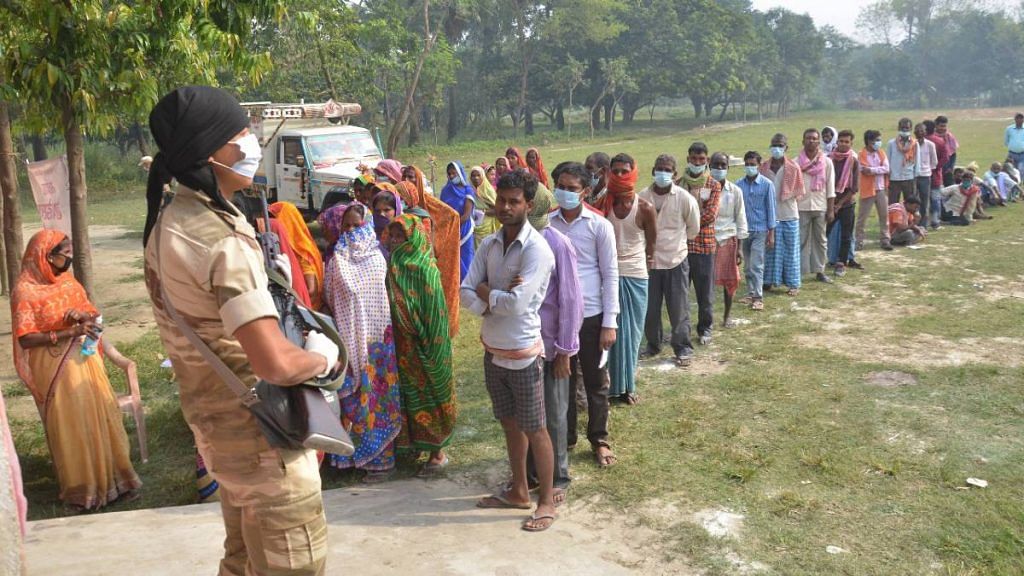New Delhi: Even as assembly elections are underway in Bihar and several bypolls are being held across the country, the Election Commission’s pandemic protocol allowing Covid-positive people to vote at booths, aided by poll officials who would need to be in PPE kits, is making the Union health ministry and a few state governments see red. There are concerns over the risks of infection and logistical difficulties in such a situation.
The Ministry of Health has written to the EC, attaching a copy of the recommendation of the Empowered Group-1 (EG-1), that the protocol should be tweaked in the interest of disease control.
The guideline, according to sources in the Empowered Group, was found to be impractical and risky. A better idea, the EG wrote in its recommendation, would be to extend the facility of postal ballots to Covid-positive patients, instead.
EG-1, headed by Dr V.K. Paul, Niti Aayog member (health), comprises several technocrats including AIIMS director and secretary, Department of Health Research, and is tasked with medical infrastructure and Covid management plan.
The governments of Bihar, where the second phase of polling is taking place Tuesday, and Gujarat, where eight assembly constituencies are voting, have written to the EC pointing out problems in implementing such an order.
The broad guidelines for conduct of general election/byelection during Covid-19, released by the Election Commission of India in the run-up to the polls, says: “Covid-19 patients who are quarantined will be allowed to cast their vote at the last hour of the poll day at their respective polling stations, under the supervision of health authorities, strictly following Covid-19-related related preventive measures. Sector Magistrates shall coordinate this in their allocated polling stations.”
ThePrint reached the health secretaries of Gujarat and Bihar, Jayanti Ravi and Pratyay Amrit, respectively, for a comment. While Ravi declined to say anything on the matter citing her “preoccupation” with other things, Amrit did not respond to calls and messages till the time of publishing this report. An email response is awaited from the Election Commission of India spokesperson. This report will be updated when it is received.
Also read: Thousands attend rallies, no masks — Covid makes no difference to Bihar election campaign
Concerns about donning and doffing protocol
A senior official in the health ministry confirmed that both Gujarat and Bihar have communicated to the EC that there are logistical issues with allowing Covid-positive people to vote at the booth. “We have also shared with the EC recommendations of Empowered Group-1 on this issue since the EG could not have done so directly. We do not know if they have taken cognisance.”
The primary concern of the EG was whether polling officials would wear the PPE kit with all safety protocols and take it off in the same way. The process is called donning and doffing.
An official, who is a part of EG-1, told ThePrint: “This recommendation of allowing Covid-positive people to vote after 5 pm is not practical. We have serious concerns about the donning and doffing protocol being followed. It is not easy, doctors take years to learn to do it the correct way. There has to be some other way in which the constitutional rights of Covid-positive people can be protected. People in hospital can vote using postal ballots. Why not extend that to all Covid-positive patients? This is against the principles of disease control, public health.”
Also read: Covid-vaccine distribution can take tips from how India conducts general elections
